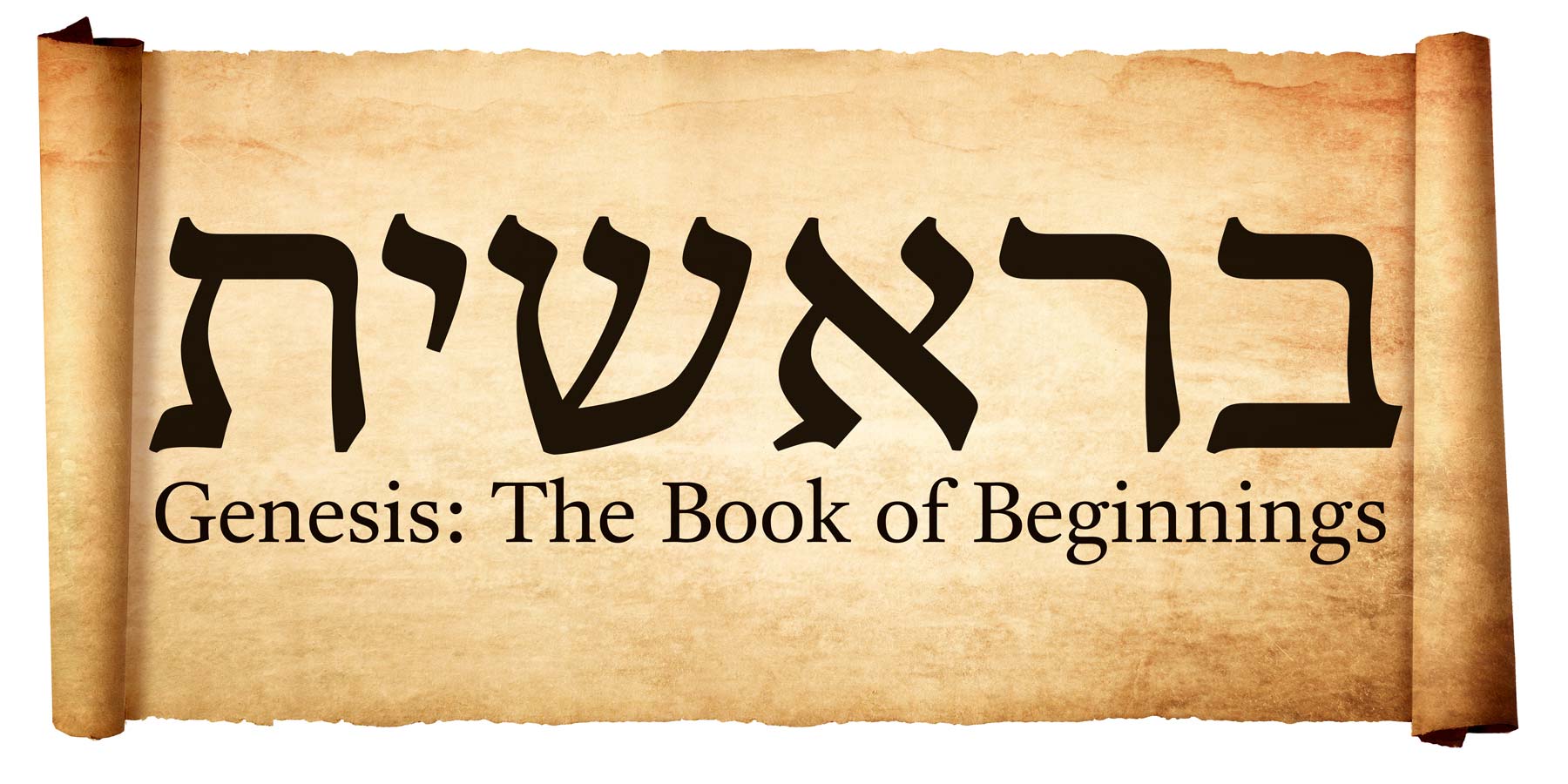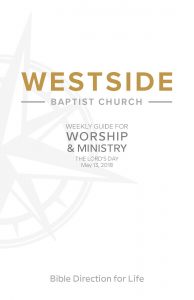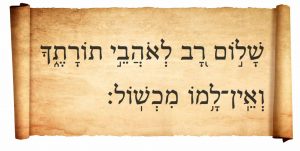Genesis Lesson 19 | 19:1–19:38
Prayerfully read Genesis 19 at least two times and then read the following notes.
Context: Setting the Table
After an initial creational prologue, the book of Genesis divides into two unequal halves of five sections each. The first half of the book (2:4–11:26) deals with the history of humanity as a whole, from its creation to the birth of Abram. The second half of the book (11:27–50:26) focuses on the history of the patriarchs. In this conclusion of the seventh installment of the story of Abraham, God judges Sodom and Gomorrah and remembers Abraham by rescuing Lot.
Content: Reading the Text
(19:1–11) Lot Hosts Angels Unawares
(19:1a) The word translated as “angels” is the ordinary Hebrew word for messenger, whether human (Genesis 32:3) or divine (as here). While these “messengers” are at some cases carefully distinguished from the Lord, in others they seem to convey his presence in a mysterious way that is difficult to precisely define. The narrative flow of the passage makes it clear that these “messengers” formed part of the group of “men” (18:2, see also 19:10) that were served by Abraham earlier in that same day.
(19:1b) While the location of Sodom is not certain, it was “at least twenty miles” from Mamre—possibly as much as forty. These were no ordinary messengers!1
(19:1c) Lot, like Abraham, was sitting when the messengers arrived. “The gateway was the public square of the city where the elders sat, public meetings were held, and legal disputes were adjudicated.”2 Yet though there must have been many others present when the visitors arrived, Lot seems to have been the only one to greet them, bowing like his uncle Abraham did earlier.
(19:2) The high value placed on hospitality in the ancient world makes the messengers initial refusal of Lot’s offer exceedingly strange. The word translated as “street” refers to “a broad open square or plaza.”3
(19:3a) The word used here to describe the way Lot “pressed” the angels to stay with him is the same one used to describe the mob’s assault on Lot in verse 9.
(19:3b) Almost every sentence of this story includes elements that are strange to the point of being inexplicable. Though Lot is said to have made a “feast” for his guests, that “feast” consisted of “unleavened bread”—the only time that these two terms are used together.4 In our culture it would be something like saying: “Come to my house for a special Thanksgiving dinner of PB&J!” Though Lot’s prestigous seat in the city gateway would imply that he had a number of slaves in addition to the wife and two daughters explicitly mentioned in the text, he baked this “feast” himself—a detail as odd as the menu.
(19:4) The unusual way in which the “men of the city” are referred to a second time as “the men of Sodom” “is a descriptive note. The townsfolk live up to their unsavory reputation; they are true men of Sodom as described in 13:13 and 18:20.”5
(19:5) The suggestion of some that the word translated as “know” refers to social rather than sexual intercourse can rightly be ignored as “wild and fanciful.”6 Furthermore, though the men making this demand were fully willing to engage in violence if necessary, the term itself is a perfectly normal way of referring to sexual relations (Genesis 4:1) and does not have any necessary implications of abuse. To put their demand in our modern vernacular, the demand of the men of Sodom was simply to “have sex” with the men who were staying in Lot’s house, and it is this demand that the passage presents as deviant, entirely irregardless of the question of consent. At the same time, it is important that we recognize that Sodom’s sin was by no means limited to homosexuality (Ezekiel 16:49). As Romans 1:26–27 teaches, widespread homosexual activity is the ordinary result of God’s judgment on a societal hardness of heart that extends far beyond the particular individuals who engage in these practices.
(19:6) As some translations make clear, the two Hebrew words translated as “door” in the KJV refer to slightly different things—the first referring to the entrance and the second to the door itself. In facing the mob with the door shut behind him, Lot initially seems prepared to act heroically to protect his guests.
(19:8) Any heroism Lot had in mind was soon forgotten as he offered his own daughters to the mob as a means of saving the lives of his guests and protecting his reputation as a trustworthy host—something that was valued in the ancient world to a degree that we can scarcely conceive. In using the women under his control to protect his interests, Lot was following the example his uncle Abraham had set for him. While Lot’s betrayal was more obviously outrageous, the underlying attitude was the same. “Both are confronted by potentially hazardous situations. To ameliorate an explosive situation both uncle and nephew degrade themselves by proposing something unconscionable.”7 This core temptation—to use those under our control as pawns in our plans to protect ourselves and advance our interests is one that every one of us faces.
(19:9) The great lengths Lot had gone in order to integrate his family into the life of Sodom made no difference. When he stood in their way, they ran him over.
(19:10) In the end, Lot was saved by the very men he was so desperate to protect. They reached out their hands to bring him back into the house just as Noah had earlier brought the weary dove back into the safety of the ark (Genesis 8:9).
(19:11) The Hebrew word translated as “blindness” is not the ordinary word for sightlessness but rather a very unusual one that occurs only here and in the similar story found in 2 Kings 6:18. It seems to refer to an “intensive, blinding light.”8 “The people of Sodom did not suffer the usual kind of sightlessness but a sudden, immobilizing, blazing flash of light.”9 To someone as deeply versed in the language of the Scriptures as Saul, the flash of light that blinded him (Acts 9:3) quite possibly communicated to him that his persecution of the church was as outrageously perverse as the behavior of the men of Sodom!
(19:12–28) The Rescue of Lot and the Destruction of Sodom
(19:13) Having revealed their miraculous power by blinding the mob outside the door, the messengers of the Lord now reveal the reason for their presence in the city.
(19:14) The grammatical form of the Hebrew word translated as “married” is ambiguous. While it could refer to those who had previously married daughters of Lot other than the two he had so recently offered to the mob, it could equally refer to those who were about to marry those two daughters. The latter scenario seems to make more sense of the story. Since Lot is not said to have gone anywhere other than “out,” and since all the men of the city seem still to have been gathered around his door, it would seem that his (future) sons-in-law formed part of the mob the angels had blinded. If this was the case, it is not all that surprising that they thought Lot was mocking them.
(19:16) The Lord was quick to deliver Lot, even when Lot himself was in no particular hurry to escape the coming judgment.
(19:17) The repeated use of the word translated as “escape” “is a sound play on the name of Lot; the humor of the play is that Lot is anything but quick to leave.”10
(19:17–22) Lot, like Abraham, intercedes for a city. The contrast between the motivation and the manner of the two men could not be more striking!
(19:29–38) The Sad End of Lot’s Family
(19:31–32) If they were really as isolated as Lot’s daughters claimed, where did they get enough wine to make their father stone drunk two nights in a row?
(19:33) While Scripture never prohibits the consumption of alcohol as such, it always and everywhere makes clear the incredible destruction that results from the sin of drunkenness.
(19:38) “The two sons are born, and nothing more is heard of Lot. His story ends on an inglorious and ironic note. At the beginning of the chapter he was willing to let the virginity of his daughters be forcibly defiled, without even informing them.…Now, in order to ‘maintain life,’ his daughters have lost their virginity by forcing themselves upon him without his knowledge.”11 And yet, in the very midst of this strange and perverse story, we see the first glimmer of the fulfillment of God’s promise to Abraham in Genesis 12. Abraham’s intercessions for the righteous of Sodom not only resulted in the preservation of two entire nations from destruction—but also directly led to the birth of Ruth, an ancestress of Jesus, the True Seed of Abraham, in whom every nation (Revelation 5:9) will find true blessing.
Credo: Believing the Truth
Traveling with supernatural speed, the messengers arrived in Sodom just as the sun was setting. Compelled by Lot to accept his strange hospitality, they were preparing to lay down for the night when the men of Sodom arrived in force to demand that Lot hand over his guests. Lot’s despicable sacrifices made no difference—in the end he had to be rescued by the very guests he was so desperate to protect. Despite Lot’s continued stalling, the Lord in his mercy remembered Abraham and ensured that Lot and his family were safely outside of the city before it was destroyed by sulfurous fire from heaven. As the sorry end of Lot’s story revealed, it proved easier to drag Lot’s family out of Sodom than to erase the imprint of Sodom on their hearts.
Conduct: Reshaping Our Walk
Discuss the meaning of the text and then walk through the following application questions as you discuss the difference this meaning ought to make in our lives today.
While we rightly find Lot’s treatment of his daughters shocking and outrageous, how might we ourselves be tempted to treat those dependent on us as pawns in our own plans for survival and advancement?
Examples: Choosing activities for our children that enhance our own self-image regardless of whether they are necessarily good for them; Making career decisions with little regard to their impact on our families; Treating our co-workers and subordinates as tools for the advancement of our own careers.
What are some of the situations in which we could be tempted to soften or ignore Scripture’s clear condemnation of every form of homosexual practice?
Examples: Family gatherings; break rooms; classrooms.
Endnotes:
1. Wenham 1994, 54
2. Wenham 1994, 54
3. Sarna 1989, 135
4. Mathews 2005, 235
5. Sarna 189, 135
6. Hamilton 1995, 34
7. Hamilton 1995, 36
8. Speiser 1952, 89
9. Sarna 1989, 136
10. Mathews 2005, 239
11. Sarna 1989, 140




